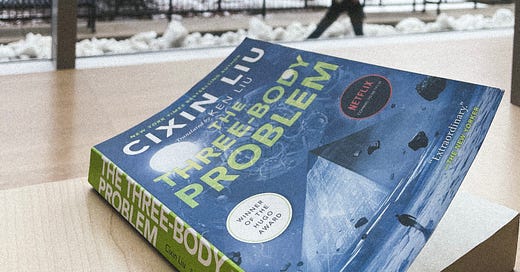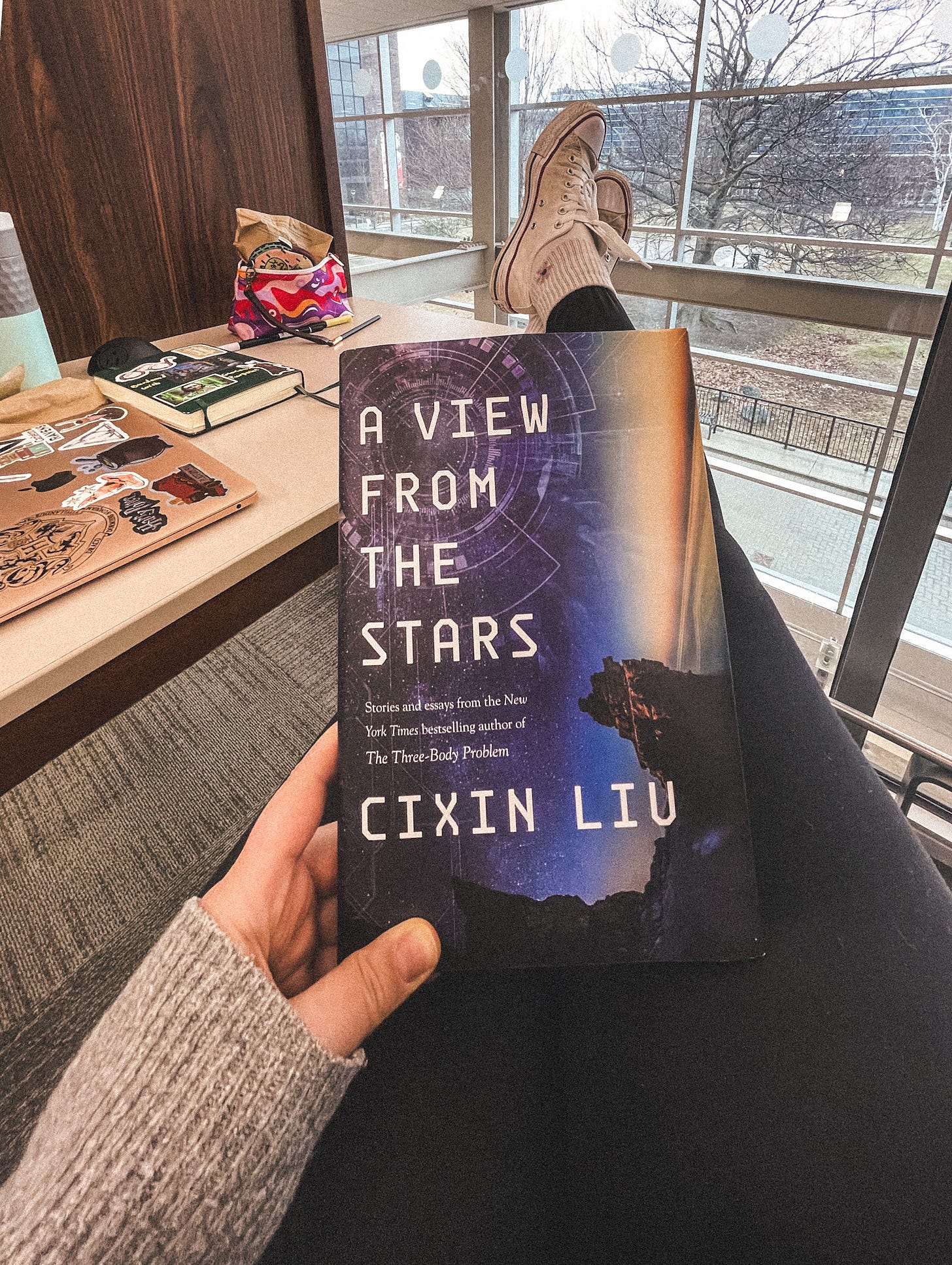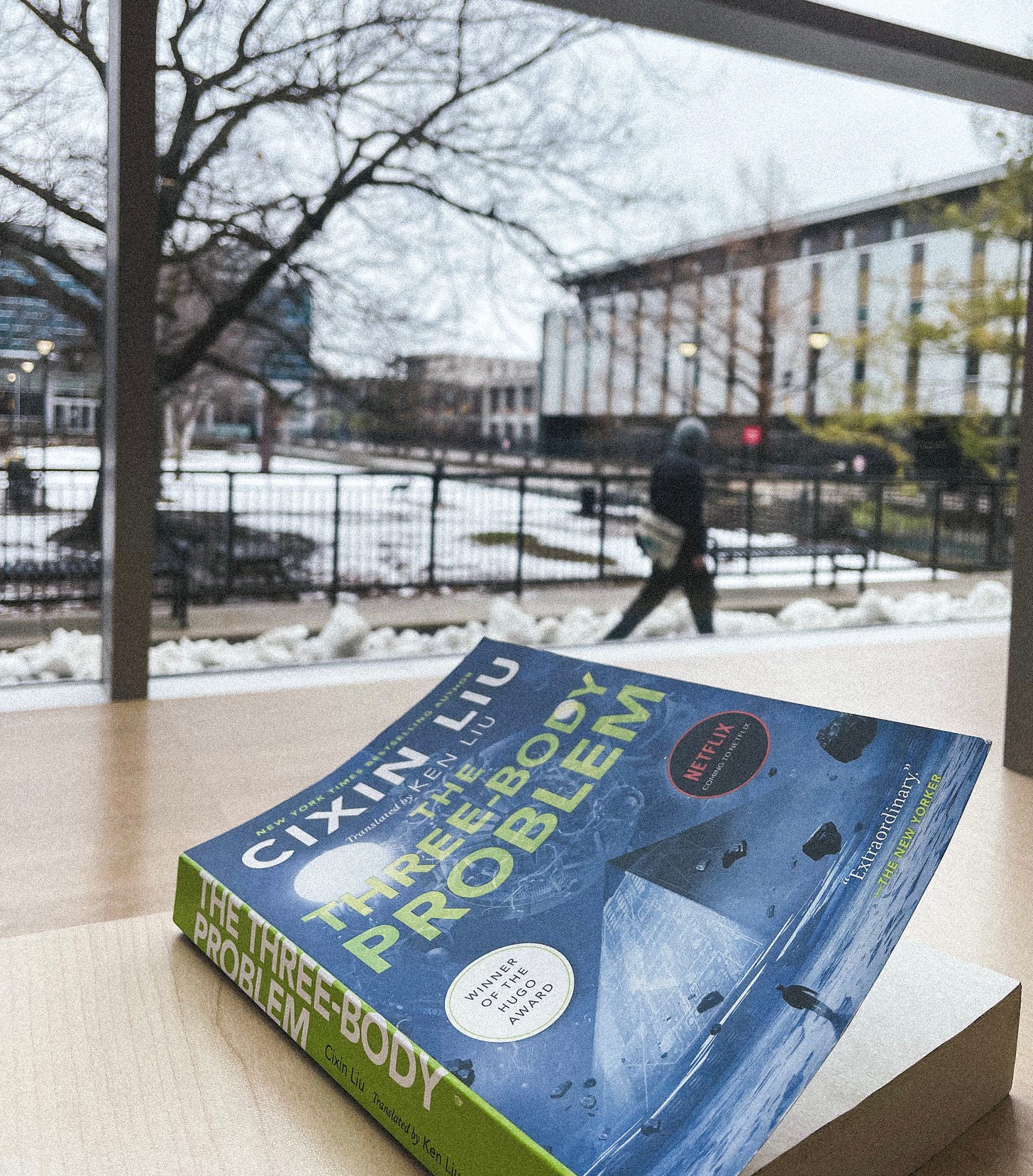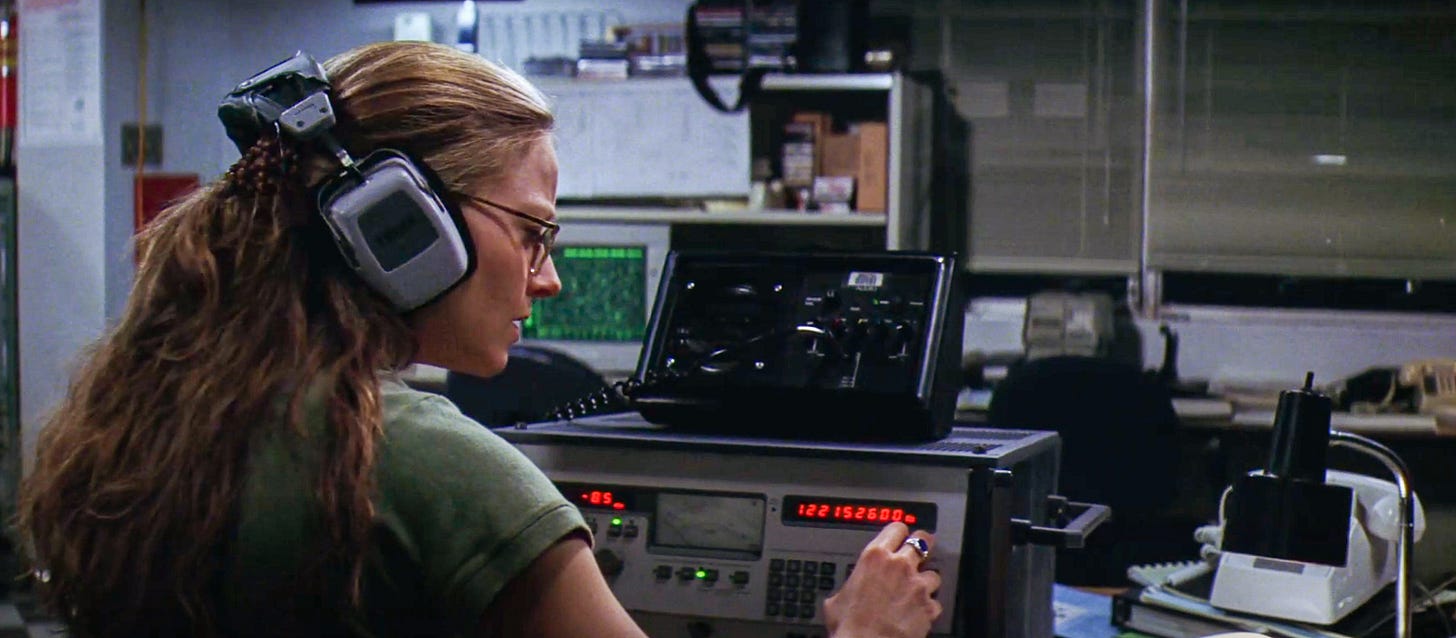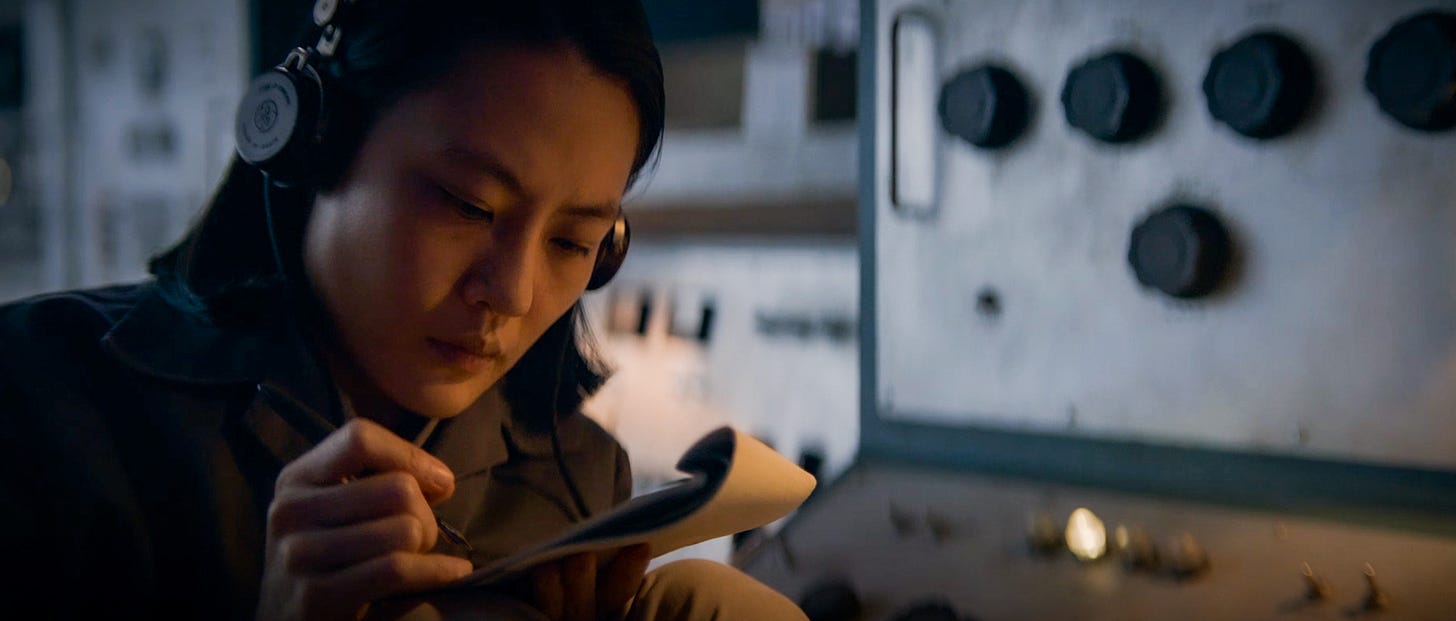Dear Reader,
How have you been? I myself am living the dream, to quote one of my favorite customers back in the barista days. Oh yes, I quit my job at the coffee shop and now identify as a full-time geek. It’s the best! You should try it sometimes. The only downside would be a lack of income which based on one’s lifestyle, would become a problem sooner or later.
This week we’ve experienced a snowstorm which as beautiful as it was, I’m hoping would be the last one of this spring. While I appreciate snow and colder weather, I’m sick of beanies and winter coats. I am ready to move on to just T-shirts and leggings. Btw, I’m a Legging Girl now, thanks to all the hot yoga and boxing classes. That is the style for me right now, which if you knew me in person, you’d be as surprised as I am.
Hmmm… what else? I spent most of my days this week at the university library pouring over Liu Cixin’s writings and related things. It’s the end of the semester and students are studying full force while I enjoy reading my fiction and sipping my coffee. I’m savouring the few weeks before I also become a full-time student. I’m taking two courses for the early Summer term. The first course is a survey of Renaissance literature in England and the other is about the relationship between literature and psychology. Yummy.
How has your week been? Let me know in the comments and now, let’s get down to business.
The stories that carried me through this week:
The Three-Body Problem (book 1 in the Remembrance of Earth's Past trilogy):
This brilliant sci-fi series is written by the Chinese writer Liu Cixin. I read the first book sometime last year. It was a hard book for me to understand, so I read it two times, back to back. Although I had a great time reading it, being the Distracted Daisy that I am, never got to the rest of the series. However, this March, Netflix released the first season of the TV show based on the first two (one and a half, really) books of the series. The showrunners are David Benioff and D.B. Weiss, the creators of Game of Thrones, along with Alexander Woo. They made a lot of changes (I’d say successful ones, though I wish they kept more of the scientific spirit of the books) to make the story adaptable. I binge-watched the show last week, and that intrigued me to read the series from the beginning. This time, hopefully, I'll finish the series before my Summer term starts. And if the gods be good, I plan to watch the series one more time with the knowledge of the whole series at my side.
The Three-Body Problem revolves around a series of events in the life of a young astrophysicist named Wenjie, which ultimately leads to humanity's first encounter with extraterrestrial beings. While this theme is a familiar trope in the science fiction genre, the central question that often arises is whether these alien entities will prove to be malevolent or benevolent. Liu Cixin offers his perspective on this issue, but what truly captivates me is his linking the pains of a solitary, repeatedly tormented girl to the potential downfall of the entire human species.
The story starts with a struggle session at the height of the Chinese Cultural Revolution in the 60s. The young Wenjie witnesses her father’s murder in the middle of people cheering and shouting slogans (Game of Thrones flashback alert d'après Joanna Robinson). Her father is a physics professor at the university and among the groups of people who were deemed counter-revolutionary and the enemies of the masses. This is an impact that Wenjie carries with her for the rest of her life. This event also sets the course for the rest of humanity because “the thoughts she could not voice dissolved into her blood, where they would stay with her for the rest of her life.”
The second timeline happens in the present time—some forty years after the Cultural Revolution. A series of scientist suicides is happening all around the country. Wang Miao is contacted by the army and a police officer named Da Shi. Through him, we understand what really happened to Wenjie in the past, and how, she plays such a critical role for all the Terrans.
I've heard that people have had a hard time getting into the books and I think it’s understandable. I was enticed by the concepts and ideas of the story, but also couldn't connect the way I wanted to with the characters. One thing that helped me get through the more technical stuff, was listening to some parts of the book with Audible and following along with the words on paper. This way, I didn't get distracted even if I didn't understand everything. And I think it’s normal to not understand everything—this is heavy stuff. But to be honest you don’t need to understand everything to be able to enjoy the story. And never shy away from using the internet and plot summaries and study guides to help you along the way.
The story reminds me a lot of Contact by Carl Sagan, a book about another female scientist who is tormented by the loss of her father, finds herself alone among other humans and seeks solace by listening to the voice of outer space. I read the book many years ago, so I don’t remember the details. But Robert Zemeckis’s Contact (1997) is well and alive in my memory.
Carl Sagan wrote Ellie Arroway’s character (played by Jodie Foster in the movie) based on real-life astronomer and SETI researcher Jill Tarter—an interesting fact that I found out just today. While browsing her Wikipedia page I stumbled upon this quote by her, in response to the many concerns regarding the danger of communication with aliens:
“Often the aliens of science fiction say more about us than they do about themselves... While Sir [sic] Stephen Hawking warned that alien life might try to conquer or colonize Earth, I respectfully disagree. If aliens were able to visit Earth that would mean they would have technological capabilities sophisticated enough not to need slaves, food, or other planets. If aliens were to come here it would be simply to explore. Considering the age of the Universe, we probably wouldn’t be their first extraterrestrial encounter, either.
I wonder if Liu Cixin also based some aspects of Ye Wenjie’s worldview on Tarter. In some ways, this book reads like a long, well-articulated argument against what Tarter suggests here.
I also started The Dark Forest (book 2 in the Remembrance of Earth's Past) but I’m still in the early pages of the book, struggling with many, many new characters thrown at me. One point worth noting is that Liu Cixin is not a trained writer and it definitely shows in his narrative style and flat characters. The primary concerns for him are the ideas, science and technology and then the plot—or so it seems. So keep that in mind if you pick up his work.
The other book that I started this week is A View from the Stars, a newly published book of Liu’s writings. It’s a series of short essays and stories. I will talk about it in more depth next week.
Ciao!
Fatemeh

